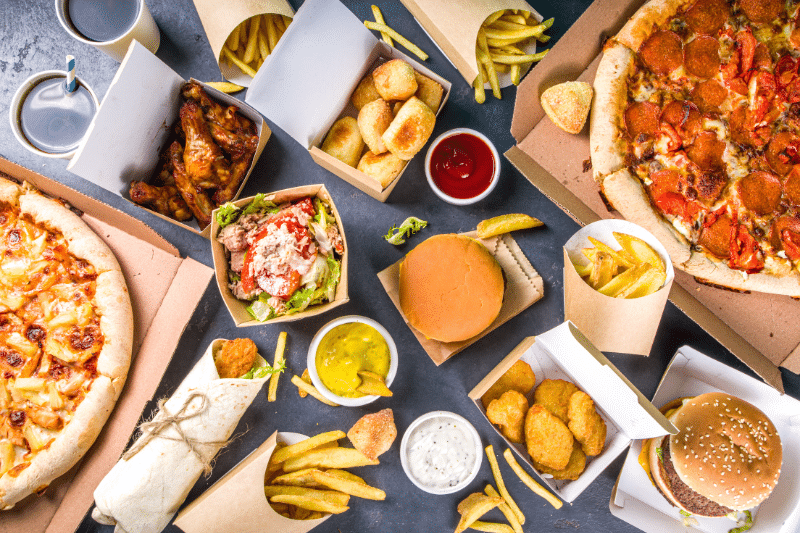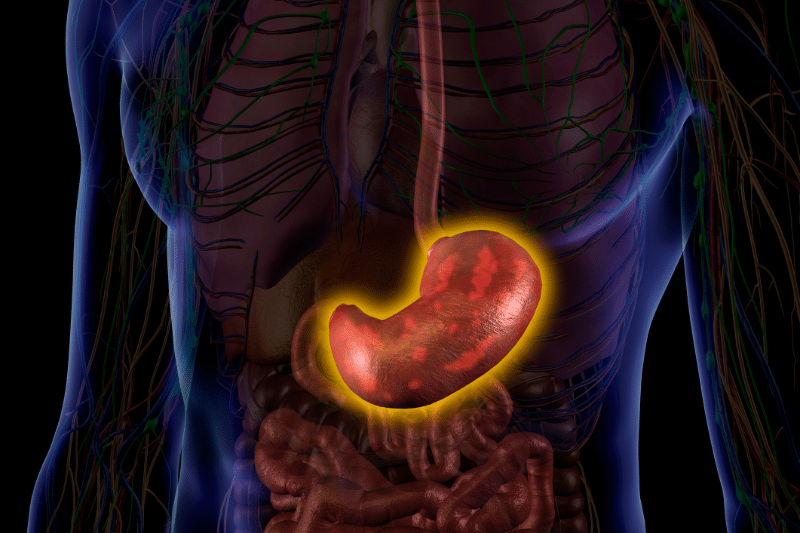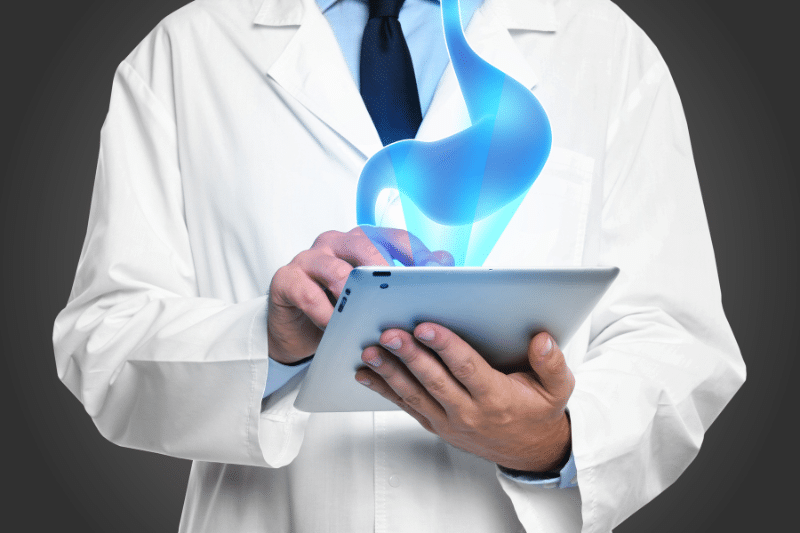Surgery GERD Reflux Overview
Learn about surgery gerd reflux. Compare the effectiveness of Heartburn, acid reflux, and gastroesophageal reflux disease GERD surgery and medications. Explore non-surgical treatment options for GERD.
Compare these treatments to surgical solutions, the benefits and drawbacks of each GERD treatment. Find out what’s best for you. Read on the potential triggers, causes, bile reflux symptoms, and available diagnosis of GERD.
What is GERD?
In essence, stomach acid or bile leaks into the esophagus. Causing the chronic condition known as gastroesophageal reflux disease (GERD). Furthermore, it can cause severe to rarely severe symptoms due to irritation. The leaking backwash (reflux) irritates the esophagus’s lining and may cause complications in the long run.
Compared to occasional acid or bile reflux symptoms, gastroesophageal reflux disease is more than just a troublesome symptom. It can severely affect the quality of life when untreated.
GERD Causes
Most cases of gastroesophageal reflux disease caused by a weak lower esophageal sphincter (LES). It is a ring-like muscle that works as a valve between the stomach and esophagus. Stomach acid and bile may backflow into the esophagus when the LES relaxes or weakens. Other factors include:
- Smoking – This habit weakens the LES muscle and promotes acid production.
- Pregnancy – This period may hormonal changes and increased pressure around the abdomen.
- Obesity – Extra pounds put pressure on the abdomen, which may push its contents into the esophagus.
- Fatty Food – Food and drinks like chocolate, coffee, alcohol, fatty foods, and spicy dishes may trigger or aggravate symptoms of GERD.
- Hiatal Hernia – This is a scenario in which the upper portion of the stomach protrudes. The esophagus passes via the diaphragm (esophageal hiatus) into the chest.

GERD Symptoms
GERD and reflux symptoms vary in intensity and include:
- Dysphagia – Trouble swallowing.
- Chronic Cough – Especially at night.
- Stomach Bulges – Digestive system issues.
- Chest Pain – May mimic pain due to heart attacks.
- Hoarseness or Sore Throat: Constant throat irritation.
- Regurgitation – Sour or bitter-tasting acid that backs up into the throat or mouth.
- Upper Abdominal Pain: Pain out of proportion to the location in the upper stomach.
- Heartburn – Burning pain in the chest, usually after meals, and may wake a person up at night.
If untreated, the above symptoms may progress to complications like esophagitis, esophageal strictures, or Barrett’s esophagus, a premalignant condition.

Detection and Non-Surgical Therapy
GERD Diagnosis and Detection
Doctors most likely to recommend surgery or employ tests to diagnose GERD, including:
24-Hour pH Testing – A probe measures reflux by measuring acidity in the esophagus over 24 hours.
Esophageal Manometry – Tests esophageal function and the lower esophageal sphincter (LES) by recording muscle contractions.
Barium Swallow – A radiologic study in which barium is mixed with a liquid that the patient swallows. This coats the esophagus and it is outlined (profiled) on the x-ray.
Upper Endoscopy – A thin, flexible tube with a camera is passed down the throat to visualize the esophagus and stomach. Biopsy samples may be taken to assess damage.

Surgery GERD Reflux – Conservative Treatment (without surgery)
The first line of therapy for GERD includes both lifestyle changes and acid suppression medications:
Lifestyle Changes
- Lose weight.
- Stop smoking.
- Serve smaller meals.
- Raise the head of the bed.
- Don’t lie down after meals.
- Avoid certain foods and beverages.
Medications
Acid suppression medications include:
Antacids – Neutralize stomach acid (e.g., calcium carbonate).
H2 Receptor Antagonists – Inhibits acid secretion (e.g., ranitidine, famotidine).
Proton Pump Inhibitors (PPIs) – Inhibits stomach acid secretion (e.g., omeprazole, esomeprazole).
These medications often can successfully alleviate reflux symptoms in many patients, however, not all patients achieve long-term symptom control. For patients who have persistent symptoms despite medical therapy. Doctors recommend the following various surgical treatments and procedures.

Surgical Treatment for GERD
Doctors consider surgical treatment for GERD, particularly for GERD patients who:
-
Prefer not to take long-term medications.
-
Have a hiatal hernia contributing to their symptoms.
- Have chronic and severe symptoms that do not respond to medication.
-
Experience complications such as esophagitis, Barrett’s esophagus, or esophageal strictures.
Types of Anti Reflux Surgery
Several surgical options are available for treating GERD. The most common procedures include:
Laparoscopic Fundoplication
Laparoscopic fundoplication is the most common surgical treatment for GERD. In this procedure, the doctors wrap scar tissue from the top of the stomach (fundus) around the lower esophagus. To strengthen the LES and prevent gastroesophageal reflux. There are different variations of laparoscopic fundoplication surgery:
Nissen Fundoplication
The entire fundus is wrapped around the esophagus 360 degrees.
Toupet Fundoplication
The fundus is wrapped around the esophagus 270 degrees.
Dor Fundoplication
A partial wrap (180 to 200 degrees). This surgery can be performed using traditional open surgery or minimally invasive laparoscopic surgery techniques in the operating room. Either under local or general anesthesia: It involves smaller incisions, smaller scars, less pain, and quicker recovery.
LINX Reflux Management System
A relatively new and less invasive alternative to open surgery is the LINX system. In this procedure, a small ring of magnetic beads is placed around the LES. The magnetic force keeps the LES in a closed position. However, the beads do not stop food and liquid from entering the stomach when a person swallows. This simple device can be implanted using surgery. Additionally, the surgery has a lower failure rate and doesn’t require a longer hospital stay.
Transoral Incisionless Fundoplication (TIF)
This partial fundoplication can be performed using a minimally invasive technique that avoids any small incisions made. For this procedure, an endoscope is passed through the patient’s mouth and then used to create a partial wrap of the fundus. A part of a thin tube in the upper stomach and around the bottom of the esophagus. This increases the esophagus pressure and helps prevent stomach acid.
Stretta Procedure
An alternative treatment for motility disorders is the Stretta procedure, which is an endoscopic, non-surgical, and minimally invasive treatment option for patients with reflux. During this outpatient procedure, doctors apply radiofrequency energy to the LES muscle. To increase its pressure against reflux. While using a special catheter to insert into the bottom of the esophagus and advance to the level of the LES. Then the LES tissue is heated causing a shrinkage or tightening effect. It effectively increases the pressure of the LES.

Anti Reflux Surgery – Advantages and Complications
Advantages
The advantages and other treatments of surgery for GERD include the following:
- Durable Relief – Surgical procedures usually offer durable relief of symptoms of GERD.
- Enhanced Well-Being – Alleviation of persistent symptoms can enhance well-being and quality of life.
- Less Reliance on Medication – Many individuals can stop or greatly decrease acid suppression medication.
- Avoidance of Complications – Surgical treatment can avoid or lower the risk of complications of GERD like Barrett’s esophagus.
Risks and Possible Complications
As with some other surgical procedures, there are possible risks and complications of surgery for GERD, including:
- Bleeding – There could be some bleeding throughout or after surgical treatment.
- Gas and Bloating – Some individuals may have issues with gas and bloating after surgical treatment.
- Infection- As normal, there may be a chance of infection at the incision site with any surgical procedure.
- Trouble Swallowing – It can happen immediately after surgical treatment. However, difficulty swallowing usually gets better with time.

Anti Reflux Surgery – Recovery
Initial Recovery in the Hospital
Patients recovering from GERD after laparoscopic surgery. Usually stay in the hospital for a couple of days for observation and early recovery. Pain control is an important part of the recovery. Doctors provide medications to keep pain under control. Patients usually have some soreness, especially in the upper abdomen and chest. As a result of the cuts made with the surgical tools and the gas used in laparoscopic surgeries.
Diet and Mobility Restrictions
As part of the recovery, patients have the following liquid diet and mobility restrictions:
- Diet – During the early recovery period, patients start with a liquid or soft food diet to give the esophagus time to heal. Then patients add solid foods gradually added to their diet. Upon the approval of the doctor or healthcare provider.
- Activity – For the early recovery period, doctors recommend rest. In addition, staying away from vigorous activity and lifting for a couple of weeks. Patients can engage in light activity and walk as much as possible to improve circulation and healing. Lastly, patients return to normal activities after following anti reflux surgery post-operative care.

Anti-Reflux Surgery for the Morbidly Obese Patient
The Impact of Obesity on GERD
Obesity is a major risk factor for developing GERD. The reason for this is that the increased weight across this portion of the stomach and abdomen increases pressure on the stomach and lower esophageal sphincter LES, making it easier for contents in the stomach to reflux into the lower esophagus below. Obesity can also lead to the formation of a hiatal hernia which can exacerbate symptoms of GERD.
Surgical Options for Obese Patients
Weight loss surgery can be beneficial for the most morbidly obese patients or patients with the dual problem of obesity and GERD. The procedure most often recommended is the Roux-en-Y Gastric Bypass. Moreover, considers effective and proven procedure in decreasing symptoms of GERD symptoms. As well as producing excellent weight loss results.
Roux-en-Y Gastric Bypass
This surgical procedure creates a small pouch at the top of the stomach and bypasses a length of the small intestine. Not only does this procedure limit the amount of food that can enter the stomach, but it also decreases acid production and decreases the pressure on stomach contents from the lower esophageal sphincter LES, thus eliminating other symptoms because of GERD.
Generally, doctors perform the procedure laparoscopically. Furthermore, decreasing recovery time general anesthesia, and surgical risks. Weight loss is more effective, long-lasting, and significant.

Surgery GERD Reflux – Recovery and Post-Operative Care
Most patients experience significant improvements in symptom relief of their GERD symptoms and overall quality of life following surgery. The strengthened lower esophageal sphincter LES reduces or eliminates reflux symptoms. Allowing the esophagus to heal and preventing further damage. Many patients can discontinue acid reflux-related damage and suppression medications That can have side effects when used long-term.
The surgeon told that even after gerd surgery. Maintaining a healthy lifestyle is important to prevent the recurrence of GERD symptoms. This includes:
Healthy Diet – Avoid foods and drinks that can trigger reflux, such as spicy foods, fatty foods, caffeine, and alcohol.
Weight Management – Maintaining a healthy weight to reduce pressure on the LES.
Regular Exercise – Engaging in regular physical activity to support overall health and digestion.
Avoiding Smoking – Doctors recommend avoiding smoking as it weakens the LES.
Regular follow-up – Essential to monitor the success of the gerd surgery. To address any complications or recurring symptoms. Doctors typically recommend endoscopic evaluations. To further, assess the condition of the esophagus and ensure the surgery’s effectiveness.
Surgery GERD Reflux – Consultation and Recommendations
Though, GERD is a lifelong disease that can adversely affect the lifestyle of the patient. Nonetheless, lifestyle modifications and medications work wonders in the majority of patients. Likewise, surgery can be a good option for patients with severe symptoms. GERD treatments like Laparoscopic Nissen Fundoplication or LINX system. Especially in the morbidly obese patients, with gastric bypass. Offers a lifelong solution to distress, as well as improves the health-related quality of life.
Patients opting for surgical therapy must discuss the pros and cons with their doctor and decide the best option for their condition. If the symptoms continue including difficulty swallowing food, burning sensation, chest pain, abdominal bloating, and even prolonged occasional heartburn. Then proper laparoscopic antireflux surgery treatment, patients can get relief from GERD and its symptoms and enjoy a good quality of life, engaging in normal activities.
Nevertheless, at IBI Healthcare Institute Advanced Hearburn Center. We have an experienced medical team and objective evidence. Moreover, specializes in nissen fundoplication and various anti reflux surgery. Comparatively requires small incisions to other anti reflux surgery. Similarly, our board-certified surgeons recommend surgery based on your specific case. To learn more about surgery GERD and anti reflux surgery procedures call us or schedule a consultation.










